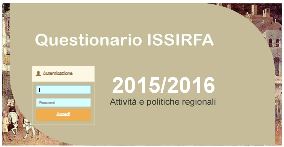Dian SCHEFOLD, Problems of Local Self-Government in the Netherlands. A Study elaborated by the Council of Europe (January 2006)
A. Introduction
Since 1985, local autonomy in
The European Charter is inserted in the framework of the Council of Europe. There is a Congress of Local and Regional Authorities of Europe (CLRAE – Congrès des Pouvoirs Locaux et Régionaux de l’Europe – CPLRE) which elaborates recommendations and resolutions to be submitted to the Committee of Ministers of the Council of Europe. Certainly these decisions are not immediately binding. But as the respect of the European Charter – like of the European Convention on Human Rights – has been defined as a condition of adherence to the Council of Europe, the importance of the Charter all over
Therefore a system of monitoring of the European States has been developed and applied in monitoring reports regarding nearly all the European States (2). The example of the last monitoring report regarding
Recently a report has been elaborated on Local and Regional Democracy in the
First, the one main topic of this report, the election of mayors, until now not provided in the
In this line the new regulation to be introduced in the
The second topic of the Report regards local finance. It is founded on the fact that the level of local taxation in the
Local taxation in the
The now presented Report and the Recommendation 180 (2005) argue that, beyond the question of “adequate financial resources”, after a reduction in that measure local taxation would no longer guarantee that “Part at least of the financial resources of local authorities shall derive from local taxes”, what is provided in article 9 § 3 of the European Charter. While the former criticism is essentially quantitative and has therefore to respect a margin of appreciation of the national authorities, the elimination of a substantial part of the existing and even in past low local taxes modifies in a way of principle the provenience of local finance. Therefore a violation of the Charter has to be stated and is pronounced in the Recommendation 180 (2005).
Third, it seems interesting that the Report has been elaborated on the request of the Dutch delegation to the CLRAE and on account of conflicts of local authorities with the government. Although the elaboration of monitoring reports is a continuous task and practice of the Congress, in this case it has the scope of a remedy for the local authorities and their organisation in the
Of course such similarities are very limited. There is no jurisdictional procedure in monitoring the application of the European Charter, the Congress is a political institution, not a Court, and the very general formulation of the European Charter limits a legalistic application. Nevertheless, in the discussions of the last years one has argued “Towards the introduction of a system of European judicial guarantees of local and regional autonomy” (10), and the result of the so titled Report openly pretends for legal protection.
Therefore the here discussed Report on the
In this situation it may be considered that, according to article 94 of the constitution of the
In following are presented in a Spanish translation, however without the appendix
- the original Monitoring Report on “Local and Regional Democracy in the
- the actualized and abridged version on “State of
- the Recommendation 180 (2005) on this Report, debated and approved by the Chamber of Local Authorities on 8-11-2005 and adopted by the Standing Committee of the Congress on 9-11-2005 (D.).
1) According to the list elaborated by the Council of Europe, only the signatures of
2) See as a recent report on that work the Contribution of Guido Rhodio and Henk Aalderink to the 14th Conference of the European Ministers, Budapest, 24/25 February 2005 (CG/INST(11)11).
3) AGL 2002, p. 357 ss.
4) See esp. Recommendation 113 (2002), Resolution 139 (2002), both based on the Knape-Report, CPL (9)2.
5) See article 131 of the constitution of the Netherlads which provides the appointment of the King’s Commissioners and mayors by Royal Decree, though moderated by an effective influence of the councils on the selection and therefore probably in conformity with the European Charter. The modification of this constitutional rule is an essential point of the reform.
6) See Francis Delpérée/ Marc Jossaert (eds.), Dossier su l’élection du bourgmestre, Bruxelles 2002, with comparative contributions. For Germany see, in this Yearbook, Silvia Diez Sastre, La elección directa del alcalde en Alemania, AGL 2004, p. 233 ss.
7) See Recommendation 151 (2004), based on the Frendo-Report, CPL (11)2.
8) According to the speech of the Deputy Director General for Kingdom Relations and Governance at the Dutch Ministry of the Interior and Kingdom Relations, Paul van Kalmthout, and the following discussion of the Congress on 1 June 2005, based on the Report CG/INST (11)12 prov.
9) Monitoring Report CG (6)4 with Recommendation 55 (1999), General Report (Frécon-Report) CPL (7)3with Recommendation 79 (2000).
10) So the title of Resolution 189 (2004), based on the Report CG (11)26, elaborated by Hans-Ulrich Stöckling/ Jan Mans/ Carlo Andreotti.
11) Eerste Kamer der Staten-Generaal, Vergaderjaar 2005-2006, nr. 30096.















